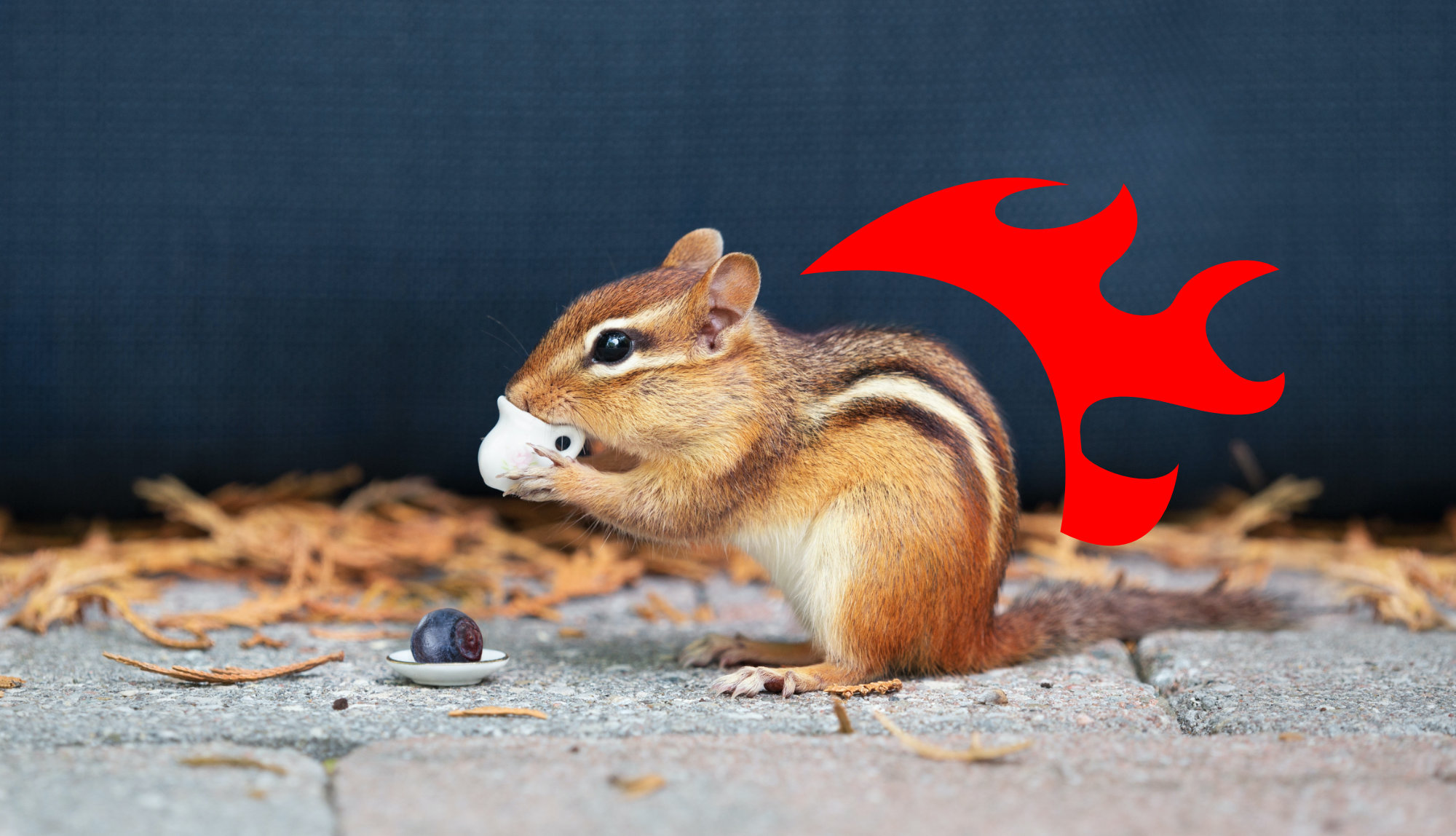
I work with a lot of small entertainment companies. Often, there are too few staff members to separate the brand from the product.
(more…)

I performed at a weed party thrown by a dispensary. It was a show with seven standup comedians and me in a windowless room with a secret entrance. No ventilation. Audience all smoking non-stop.
First glance, this might seem like a dream audience. I usually like a very alert audience, but wanted to see what this was about. Wanted to see if I could meet them where they were and give them a ‘memorable’ experience.
I usually try to watch as much of shows as I can. I am a sponge for learning more about performance; and also I want to understand and empathize with the audience before I go on. I could only watch a little of this show because I was gonna get really stoned from the ambiance and I needed to juggle for these people.
What I saw in this show amazed me and stuck with me.
The comedians were generally not doing well. The audience was very unfocussed. They were respectful. Most of the comedians were poking around. When a great live entertainer is flailing, they’ll keep adjusting until they find what the audience wants. Nobody was really finding it. I was in and out of the room checking each act.
The fourth act was reading jokes about marriage out of his notebook (ugh) and getting nothing from the audience. Five minutes in, he stopped. Looked up at the crowd. Said “I’m really nervous here because this room is full of smoke and I’m a Jew.” Killer. Big laughs from everyone. People shifted in their seats when they laughed. They were on board! This guy had done it! Next he said, “Oh, so you guys don’t like heady jokes about my wife, but you’ll laugh at Holocaust humor.” A little laugh. “My wife…”
I walked out flabbergasted.
When I came back in, it was my turn to perform. I killed. I scared the fuck out of them by juggling knives, I used short jokes. Changed the pacing, volume, proximity, and everything else non-stop to deal with short attention spans. Big laughs and engagement and it was fun. Just want to clarify that I am great here. It’s not the funnest type of audience, but it was good to know it’s possible to engage them.
This dude’s actions so stuck with me because of the attitude. I could not believe it. Here are some parts of it.
I had seen performers deny an audience the good stuff before, but never this knowingly and this blatantly. It was a certain apex of understanding for me.
Entertainment is a trade. Like other trades, it’s pass / fail. You shoe a horse or you don’t. You weave a rug or you don’t. You make them laugh or you don’t.
You don’t want your plumber to say “There’s still water pouring in your bedroom. My work is done. Your pipes didn’t really like my type of plumbing.”
This kind of defense mechanism doesn’t have a place in show business and it’s not rewarding for the performer.
Vulnerability is very rewarding and it’s the thing that connects best with an audience. Great standup is beautiful because it is so exposed and everyone in the room feels the stakes. “This person needs to make us laugh or they will die!”
We can always get locked up in “artistry” or “taste” because we get scared of facing the grade. Finding your audience and being amazing for them is one thing, but this story isn’t a case of a the wrong audience. He committed to this audience. If you have an audience that showed up for you, or you decided to make something for them; it’s up to you to provide them entertainment.


Seeking celebrity is just as shallow as seeking to be a self-respecting entertainer.
We all wanna make a dent in the world. We want to leave a legacy. We want to affect others. When people seek celebrity, I believe they’re trying to replicate people who they saw made a difference in the world.
You have a hundred candy canes and you drop them one at a time from a balcony on people at a cafe. Annoying. Put all 100 in a bag and drop them on one person. That person gets knocked out. Which tactic makes a bigger impact?
There are a lot of unknowns. Even if everything was as it seems, and everyone’s equal, it’s still a judgement call whether to make a small annoyance on many or a KO on one.
Is it better to be on a sitcom where you’re reciting lines you don’t believe in or have a poetry night with 1000 people who hang on your every word?
Every time you do anything, you’re making some impact on others and society. I would even say you’re making relatively the same impact on the world no matter what you do.
Popular people are doing a thing that society wants them to do. Break from the thing we want, and yoink! There goes the spotlight. So, celebrities are really playing a role that we want them to, not just doing everything they want.
I think the main issue that keeps us in the game is fulfillment. In order to keep on going, it’s helpful to feel like we’re really making a change for people.
A helpful way to horde fulfillment is to stick to one measurable path. If your key performance indicator in life is how many followers you have on Insta, you can look every day, see how many you have, get some more, and you’ll get a lot and you’ll see the progress.
Not everything in life needs to be measurable, but figuring out, “I want to talk to one person after a show who really gets what I do.” Can give you that sense of purpose and help you see how much impact you make. It can make life more of a game.
I encourage you, when trying to figure out what you’ll measure, to think back to why you make entertainment? How did it start? That can help to understand what really drives you and what will continue to make life great as you continue to serve people impact.
Pick a measurable thing that you feel is really good for the world. Something you truly deeply believe in. Annoying people at a cafe might be exciting, but there are probably better ways to enjoy a balcony.


“Starving artist” is stuck in our heads like “for the birds.” Both phrases rarely apply.
Creative workers are vital. As more stuff is automated, the work that will be left for humans will be solving complicated problems (creativity). Harnessing creativity becomes more valuable as time goes on. Skills like compliance and memorization diminish in value.
The idea that “starving artist” is such an earworm implies the opposite. It makes parents fear a black sheep. It makes children get back in line for a law degree. It makes creatives devalue their own work to find legitimacy. It makes employers and art buyers expect a discount.
When humanity got good at acquiring food, water, and shelter; life got easier. We had time to make tools, and life got easier. We had time to make weapons, and life got easier. We had time to make art.
Same now. If you’re from a poor family, you’ll most likely need to work and pursue things that will help earn money for your family. But, if you’re from privilege and fear of poverty isn’t on the radar, your parents are more likely to encourage you to choose a career considered more frivolous… less directly about acquiring food.
More rarely, resilience can be a privilege that leads to creative work. You might be born into a scarce situation, but learn to thrive in scarcity, so you have more wiggle room to try stuff.
There’s this study done by Bankrate that ranked college major above by lowest income and employment rate. Regardless if artists are less paid or more paid than other workers, there are some problems with the study.
According to this Forbes article these artists are in the top 20 earning celebs. They are probably not starving (involuntarily).
Unfortunately, celebrity is often seen as the flip side of the starving artist coin. You go from hungry with purpose to empty and rich.
The way capitalism works, if you come from privilege, you probably stay in privilege. If you can’t afford food, your community, family, mental health, and knowledge of society will probably help you out quickly.
If you fall out of privilege, you become an entry-level worker, not an artist anymore. From my experience, this is unlikely to happen.
If you’d like to change the dialog, the culture, and the potential for weirdos; here are some alternate phrases…


This is why so much poop is produced and why delusional people will swim against shit creek’s current. People are not asking for great anything.
General audiences are asking for…
They are absolutely right from their perspective
The most impactful advice I got from Frank Olivier is “There’s no such thing as a bad crowd.” This has carried me through. It helped me understand that entertainment has an objective goal of entertain no matter what. This has helped me listen to audiences and understand that the thing I had planned might not work out.
The listening must include listening to their perspective. This is the part where your audience is wrong — I hope. I hope your perspective on entertainment is way different from your audience. You are a pro. You’re an expert. That’s your job.
When I go to the doctor with a broken nose, I want the pain to stop immediately. The doctor knows that there’s more to it than current pain. Gotta set the nose back in place first — which adds more pain. The pain killers that can take my comfort to 100% might be addictive or bad for my overall health, so the doctor recommends an over-the-counter remedy.
If your audience can choose what to do, it will be the most boring thing possible that they do every day. That’s why they come to you, Dr Feelgood.
I like Oxford’s definition of “delusion”
| An idiosyncratic belief or impression that is firmly maintained despite being contradicted by what is generally accepted as reality or rational argument, typically a symptom of mental disorder. |
I wrote more about how to stick to your voice earlier. We as entertainers need to take a strong position that is not popular, defend it, and lead our audience to receive it.
We can help people shift their perspective a little bit, but we will never bring them completely into our perspective. The doctor rebreaking my nose doesn’t have to explain to me all the literature and broken noses they’ve seen. I trust them and am open to being lead. Bringing audiences to the good stuff is a combination of clarification and leadership.
There are a bunch of difficult pieces to taking care of an audience the right way. You don’t have to do it. You can chicken out. You can go into reality. The hard pieces are…


This is gonna get boring before it gets exciting.
There are some hard truths in this post that might sound too basic to be true. “Getting fans is supposed to be like Hungry Hungry Hippos, right? You just grab a bunch!” Nope.
Many showbizzers look at fan growth from the perspective of the showbizzer. Instead of thinking about increasing your numbers, I hope as long as you read this article, you’ll think about the perspective of a potential fan.
It seems like there are millions of people who love Garth Brooks, but then he releases an album from a different genre and his peeps jump ship. Fans connect with the creators and characters of stuff, but it’s usually through the service of the entertainment. The assumption is the entertainment service is the most authentic expression of the people within.
If you have three fans right now, don’t expect them to follow you anywhere. Remember that they like something that you do. They might all three like three seperate things you do. If so, you might not be able to take them all with you.
The people that are able to make a good thing, and stick with it for as long as it takes, are often filling a gap that they see in the world, not just seeing something that’s popular and trying to duplicate it. Scratch your own itch and it’s likely there are other itchy people like you.
This formula doesn’t only enflame your passion, but it helps you create something with a feeling of authenticity and originality. If you’re serving people in a way nobody else is, you’ve got a monopoly!
You’ve seen 12 episodes of “Dinosaur Battles” and you liked them. You are a fan. You will watch episode 13. You trust that the show will deliver either the same thing you liked about the others, or something adjacent to that thing. If suddenly, they have a love story between two cartoon horses, you might lose trust in “Dinosaur Battles” and become a non-fan.
Consistency builds trust.
This can be tricky because sometimes you don’t always know what part of the thing you made is beloved.
You won’t get a fan before they consume a thing you made, so you can’t sell an album to a fan that hasn’t heard your music. They’re not a fan yet. Just because someone clicks ‘follow’ doesn’t mean they’re a fan either. You need trust for them to commit to getting on board with your next project and telling their friends about what you’re doing just based on your name.
This is why you can’t grab a fan. You have to build up the trust.
Then, if you want to sell something to a fan, you do that with the next thing.
So, if you believe me that a fan is made of trust, the game isn’t so much about exploding your work out to the world, hoping a percentage of people see it and like it. It’s instead, how do I meet up with the person who is served by my good thing and serve them consistently well?
I do puppet shows for the children of celebrities. How do I make some things they want in line with my puppet shows, get in front of celebrity parents, give them some awesome thing, and then keep on giving them consistent good puppet show content.
More details on small effective fanbases : 1000 true fans
A fan can see something they like and have different levels of trust depending on whether they see the thing as a part of a consistent portfolio or not.
Scot Nery’s Boobietrap has a high barrier to entry, so we want people to get the idea that, even though the show is different every week, it serves the same amazing feeling every time. Here are some tricks to that.
Now, more than ever, we need to think of fans as individual people with individual expectations. Everyone wants a bespoke experience. If you can’t give it (or part of it) to them, they can get it from an algorithm.
If you have the budget to make 300 flyers for your show, you’re better off putting all 300 up around one city block than around the whole town. The people on that block will see your flier, get impacted by it, read it, and possibly respond to it by buying a ticket or at least looking up the website.
Since this game is about consistently building a relationship of trust with fans, you’re going to have to stop spreading yourself out, and figure out how to fence yourself in to your people so they can see you’re always showing up.
I know I didn’t cover this whole topic, so please ask questions in the comments.


There are people in your field working for free. If you’re trying to keep up with them, your value ( no matter how important, experienced, imaginative, skillful you are) is $0.
If you’ve ever been angry at people providing good quality work for lower prices, I am writing to you. If you’ve ever been pissed that someone has hired a crappy entertainer because they are cheap, this is for you too.
(more…)

From an entertainment and branding standpoint, church has a lot of lessons.
Disclaimer: I did a lot of Christian church time in my early years, but I’m not a church historian, I’m not looking up much info during this writing, and I am not going to approach this from any theological perspective. I hope if church people use this post to get more people to attend and enjoy, they use that attention to improve lives.
I hope entertainment people can pickup some inspiration from this especially. What we do is bigger than some lights and makeup and smoke and mirrors. We affect people and add meaning to their lives. We are community leaders and public servants. We are healers.
I have a repulsion to institutions. I try to get into things like clubs and stuff, but the way they hold on to past ways really makes it difficult for me. Even reverence of old theater companies gets under my skin a little bit.
The positive side of institutions like giant churches being slow to change is that we can see what worked for a long time. We can analyze why humans needed certain rules and traditions because they are living demonstrations of optimized gatherings.
I think that contemporary Christian churches are trying to be modern and youthful and accessible. Often, they’re trying to be gentler and more open. This stuff can be nice, but this article is about how they’re throwing out the baby with the baptism water. The experience can be more sticky and more cathartic.
“Lock in” in marketing is about making it difficult for the customer to switch to one of your competitors. Like imagine if you decided to switch cell phone providers today. Oh, man! It takes forever. Maybe two and a half hours at the Verizon store!
Since people generally feel like a phone plan is more required than a church, a person who’s not locked in to your church may get exploration fatigue and not go to any church. Comedy shows are even more vulnerable to this problem.
Wanted to define lock in really quickly because it’s gonna come up a lot.
Diversity of viewpoints is important to good entertainment, but while congregations are diminishing because of aging-out, many places are thinking they need young ministers to bring in young people.
Great entertainment is about leadership. A great leader must be aware of what the audience is experiencing and be able to take them to the next level. Usually experience makes a person better at this, so getting a dude because he’s 22 and has tattoos isn’t necessarily the way to “rock” your congregation and keep them coming back.
There’s often a thought, “If we want more visitors, we gotta make it easy for them to join in.” The problem is that churches aren’t going for visitors. They’re going for members. Repeat customers are easier for acquisition, and they build the community. A first time visitor probably won’t donate much money or rake the church yard Sunday afternoon. Need more lock in.
Lack of accessibility helps with retention. When someone comes to Scot Nery’s Boobietrap, they enter through the back, the venue is a little shifty, the hallway is long, and they’re not really sure what they’re into. It takes a while to pick up on what’s going on and feel a part of it. After you’ve dealt with that experience, you know that next time will be easier and the time and energy you expended with that introduction is a sunk cost that will make you want to experience it again.
Lack of accessibility also adds to exclusivity (this is something special) and it makes a person want to see their friends experience the integration process.
When the population of earth was smaller, there would be a church to fit a village or a neighborhood. Now, there’s a huge number of people. I can’t count them all. There a bunch of kinds of churches. People are willing to drive to get to their favorite church.
The lines that describe your community maybe aren’t geographical anymore, but drawing those lines in social circles can be really helpful for determining what your group is about.
Let’s say one group you’re focussed on is parents in their 20s. That means you might want to setup a daycare, parenting classes, student debt classes, alternatives to clubbing, stuff like that. You’re tax-free, so set up great services to the community, but make sure you know who your community is.
If you’re doing a thing for everyone, you’re doing a thing for no one.
If your community is older people who are really into patriotism, maybe create programs for veterans, or soldiers’ families. Then, your community feels good about being part of an important service.
Gatherings gain a lot by setting up their edges and constantly explaining to attendees that they are within the edges. “This is who we are!” This church is a thing.
Glide in San Francisco is really good at this. I don’t know if they ever mentioned Jesus in the service I attended, but they mentioned Glide about 1000 times. This gains them lock-in and also reminds the members that no matter what disagreements we have or differences of opinion, we are all pro-Glide.
When people couldn’t read, when books were scrolls and were rare, folks could go to church to hear the bible. The church was the authority on what was expected for life. It was the authority of a lot of things.
It’s hard to decide a position for a group of people, but deciding to be the authority in one realm, gives attendees something to latch onto.
Scot Nery’s Boobietrap is an authority in weird/variety/circus badassery. People can come and know that and feel like they can trust us for at least one thing.
A lot of new churches are gatherings in auditoriums. Blank spaces with projector screens. You gotta make that sitch special, folks! You ever walk into a historical opera house or a Cirque Du Soleil Show? That’s religious!
With entertainment, we want to be in sheep mode. When people are awe-struck, they’re more receptive, and more trusting of leadership. Create a wonderful, artistic emersion so people can connect and accept. I’m not saying have a bunch of kids paint murals. I mean hire Michelangelo or some other ninja to blow people away!
Music is art too, but I wanted to say… some new churches have these anonymous background rock bands because kids love the rock music? I don’t know what it is. Contemporary christian rock is not my jam. Regardless of that. The band is just some people making music.
Compare this to an organ player who’s positioned on this high bench playing a ridiculously loud, grand and dynamic instrument while wearing a totally bananas shiny robe. There are not pipe organs at any bars in town. You can’t travel with an organ. This is special.
I don’t listen to pipe-organ radio or anything, either, but the point is make the music grand! If you’re going to have a band, have a band you can’t hear anywhere else. Give the band a name so that they’re on a pedestal. Get them to write the songs or commission original songs. It isn’t about ego. It’s about making the experience potent and giving value to your audience.
Damn, if those old churches didn’t know how to weaponize fear! Well, fear works. You don’t have to terrorize people to use fear. There’s fear of lost opportunity, there’s fear of missing out, there’s fear of loneliness. All these things can be leveraged to sell more of whatever you’re selling. The difference between using fear for good and bad: you don’t have to manufacture fear, you can use the fear that already exists and offer a solution to the problem.
I went to church as a kid because I was overwhelmed with life and I wanted answers. I found the most strict church in my town because they seemed very confident and very black and white in how they translated the bible. I got some clarity and direction. Very calming.
Just like I said to be an authority, fence yourself in and make some statements. Be clear. Say yes to some things and say no to others. Make commitments. Many organizations are trying to say nothing so as not to offend. If you’re serving a specific community, there will be some black and white things for them and they’ll want to hear it. Maybe it isn’t “You’ll go to hell for dancing with the opposite sex,” but it’s “We won’t stand for children suffering in our town.”
Ritual is baked in to humans. It’s so nice to do the same thing over and over. It’s a relief to let a practice be more important than your momentary comfort or opinion.
All the standing up, sitting down, repeating things, singing from the same book, and whatnot is incredible in certain ways. It reduces stress, gets engagement, and give the audience a feeling of purpose. When people learn the rituals of a church that are peculiar at first you get more lock in!
Boobietrap is every Wednesday (well we’re on a little break because squirrels have taken over) and that weekly nature is incredible for people’s mental health… especially mine!
I’ve sat through a ton of bad church services. I’ve just spent so much time there that I want to get something out of it. Writing this has helped me to refine my thinking and see what applies and what I’ve learned. If it helped you to develop your show, your church, or your weird hamster cult, please lemme know.
I might not go to your church, but I feel if you’re making people sit there, you could at least give ’em a good show!


We can get lost in the technical complications of making shows / games / books; it can get murky in the details, but what our audiences want is a relationship with a person. It’s very simple, but difficult to achieve. It might be a relationship with a character, with a creator, or with the human they imagine from an experience.
Humans’re evolved for human relationships, not for downloading a song.
(more…)Our primitive brain tells us “There’s safety in the village. Make friends”


I think the first time I wanted to do a magic show was when I was about six years old. I saw a magic show. I saw the audience respond. I felt the feeling they felt too! I had a hope that there’s a supernatural. I had the pleasure of being wrong. I had the delight of a crowd laughing together. I wanted more of that.
(more…)

Entertainment is about humans. We want to see good humans. We think we’re one of them… Or, we want to see bad humans to make us feel better.
I don’t have words for these things
This belief in good people is the opposite of cynical. In English, we only have the word “naive.” Funny that a word with a negative connotation can be the opposite of another.
This isn’t quite the right word either, but when something separates us from the humanity we desire it’s seen as insincere. Kinda a punch to the gut of our naivety.
I am amazed by Wayne Newton, but when I see someone trying to be Wayne Newton, they have taken all the humanity out of it. Ruins it. It sucks the life out of it, and it’s counter-productive.
Technology itself is very human. It’s flawed and ambitious and nonsensical. When entertainment pros think the opposite, the human connection is breached.
Simple example: microphone goes out during a show. Performer tries to smooth it over. Now we’re all looking at the microphone. The performer is not showing anger, frustration, surprise or any emotional response to an obstacle. Insincere.
The whole reason I’m thinking about this is we are now trying to use technology to bridge the gap in entertainment. We can’t be like the mic person above. We can’t try to make a human connection in spite of technology. We will find entertainment success by using the technology to amplify the humanity that we share.
Video chat is buggy and it’s very difficult to make an online show seamless – not that seamless is human. If your goal with an online show is comedy, you better have a funny and surprising approach to the bugs. If the bugs are preventing you from your plan, do a long rant about video chatting that’s funny.
We want to connect with a human.
Technology gets in the way of that when we deny ourselves to support technology.